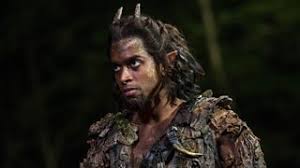
Michael Chekhov.
I want to begin with an extract of a note I sent to my group of Chekhov students yesterday after a Zoom session.
‘First of all thankyou again for a committed session on atmosphere. There were three big plusses for me, one in that sense of commitment, two when you all crossed the threshold into your room between the hallway and your room, reminding us that for now your study was your stage; and three when, in the movement exercise, I suggested you imagine the walls of the room were not there. In that moment, it was as if everyone’s walls vanished, rather like in the children’s book, Where the Wild Things Are.’
A polarity within this strange time in which we find ourselves is whether the work we are doing is primarily for the ease and betterment of the people who come to the virtual class or to be really teaching the technique to actors for the enlightenment of an audience. The virtual workshop puts this dilemma up front and centre. everyone has a different focus but I would say myself that the work is always a balancing act and has to be both.
When I saw that moment in my workshop, when I asked people to imagine their energies were pulsating out through the walls, I felt something happened. Something very powerful was communicated to me very strongly through those little zoom squares. And that thing was even more powerful exactly because they were working within their rooms rather than the studio. It made me connect with prisoners in darker situations than most of us and how the imagination liberates and compensates us all when in difficult situations provided our will is not broken by the weight of what is happening to us; when we are not actually ill or oppressed or struggling financially so much that we are in danger.
Today in the class for the first time I encouraged a lot of work in their rooms away from the monitors, and above all to not always allow the monitor to be the focus of their radiation, to trust the participants more to commit for themselves; to allow the cord of energy from the monitor to link us together rather than them (and I) feeling like it was a rope we had to hang onto for dear life. Of course there are distractions where they were and we did talk about that a bit. It is not dissimilar to when you are working on a film and a whole pile of things are going on around you, but you have to be there in your reality and your truth with your fellow performers.
I personally feel like an artist who has to kind of work underground, like Shakespeare and his company hiding out during the plague years or theatre in times of war and oppression.
I particularly wondered about theatre companies in the English Civil War when theatre was banned as ungodly. What did the actors do during this strange and difficult period of many years? What was lost? Who died in penury, their living and their creative talent and opportunities wasted? I want to keep this Chekhov work vibrant while we are in lockdown because it is a unique way of seeing the world and creating art; because even in this difficult time we have a duty to preserve our artistic wholeness.
“The artist of today cannot be an artist if he is disconnected from real life; it has never been possible in any ethos, in any culture.” Michael Chekhov Lessons for Teachers
Ironically, whilst Zoom is strange, for now it is a reality. I have been surprised at sometimes just what comes through. We have to stay awake.
One thing that is lovely is that I am much more in contact with international colleagues, and that people from all over the world are coming to study with me. That is fun.
(email chekhovtpi@gmail.com for courses)


 In the meantime…… whilst online learning is far from ideal there are aspects of the Michael Chekhov technique we can explore and it means THE WHOLE WORLD CAN COME!!!!
In the meantime…… whilst online learning is far from ideal there are aspects of the Michael Chekhov technique we can explore and it means THE WHOLE WORLD CAN COME!!!! The Michael Chekhov acting technique, with the movement of energy in the body as one its central tenets, requires you to really be ‘in the room’ when you are working with people. It is hard to express the sensation I feel when teaching, as if I am moulding the session with the help of the participants, or like a boat, steering the class into the wind but aware that some discovery by either myself or the group can send us off into different waters. It is a communion with every single person in the room.
The Michael Chekhov acting technique, with the movement of energy in the body as one its central tenets, requires you to really be ‘in the room’ when you are working with people. It is hard to express the sensation I feel when teaching, as if I am moulding the session with the help of the participants, or like a boat, steering the class into the wind but aware that some discovery by either myself or the group can send us off into different waters. It is a communion with every single person in the room.